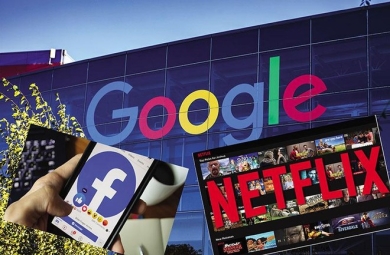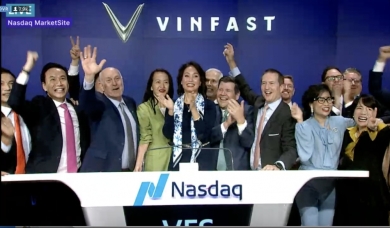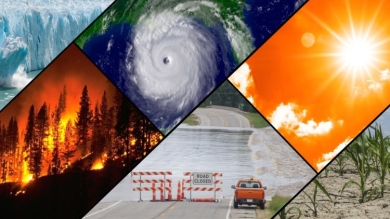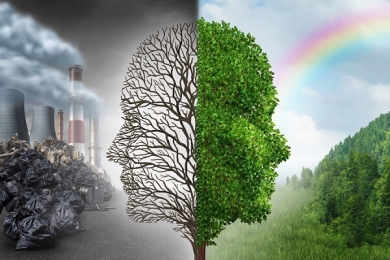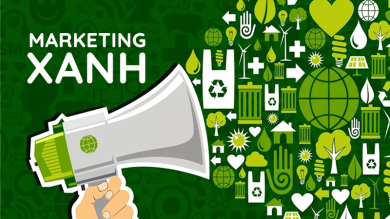Reflections by the philosopher Slavoj Žižek on universality and “worldless places.”

For decades, Sam Huntington’s famous thesis of a “clash of civilizations” has been regarded as the opposite of “the end of history” idea posited by Francis Fukuyama. In reality, it turns out that the two go together: One is a condition of the other. As the philosopher Slavoj Žižek insightfully puts it in a paper prepared for an upcoming colloquium of the Berggruen Institute Europe at the Casa dei Tre Oci in Venice, “the clash of civilizations is the politics of the end of history.”
Let me explain.
The original formulation that humanity was reaching “the end of history” was argued by the French Hegelian-Marxist philosopher Alexandre Kojève in the mid-20th century. For Kojève, the core factor driving history forward, the raison d’etre of human initiative, was the materialist struggle to overcome necessity and nature in order to realize the full potential of human freedom. This historical progression, he posited, would culminate in a kind of satisfied stasis devoid of major conflict once a sufficient level of prosperity and security was achieved. After the Cold War, Fukuyama tacked on the notion that the triumph of liberal democracy and free markets set the stage for the inexorable achievement Kojève predicted.
Though under-emphasized in the afterglow of those early post-Cold War days, Fukuyama then already had a sense that conflict would hardly disappear. Rather, he suspected that tensions in the times ahead, would, as Hegel himself had seen it, mainly concern “the struggle for recognition” — or what we have come to call “identity politics” these days.
Others at the time, like the Mexican poet Octavio Paz, had a different worry. His concern was that the triumph of modern liberal sensibilities tied to consumer capitalism, which shed all historical tradition and faith in the future while sanctifying the individual pursuit of happiness in the present, would drift into a kind of moral indifference. “The real evil of liberal capitalist societies,” Paz said to me in one conversation in Mexico City, “is the predominant nihilism” that takes the form of “a passive indifference to values. Without a higher unity we only tolerate difference because we are equally indifferent to everything and everyone.”
In his Tre Oci paper, Žižek threads these two strands together.
Worldless Places And The Reality Of Fictions
“Although capitalism is global and encompasses the whole world,” Žižek writes, “it deprives the large majority of people of any meaningful cognitive mapping. Capitalism is the first socio-economic order which de-totalizes meaning: It is not global at the level of meaning. There is, after all, no global ‘capitalist world view,’ no ‘capitalist civilization’ proper. The fundamental lesson of globalization is precisely that capitalism can accommodate itself to all civilizations, from Christian to Hindu or Buddhist, from West to East. Capitalism’s global dimension can only be formulated at the level of truth-without-meaning.”
It is in this context that Žižek offers the surprising observation that, if Kojève were alive today, he would see South Korea as the place where history has ended thanks to the triumph of liberal capitalism. Why?
“South Korea is arguably the country of free choice — not in the political sense, but in the sense of daily life, especially among the younger depoliticized generation. The choice we are talking about is the indifferent choice of moderate daily pleasures, the choice among options which don’t really matter, what one listens to and reads, how one dresses, how one socializes and eats, to which foreign country one goes for a holiday,” Žižek submits.
He cites the Italian philosopher Franco Berardi’s report on a visit to Seoul:
“Korea is the ground zero of the world, a blueprint for the future of the planet. … In the emptied cultural space, the Korean experience is marked by an extreme degree of individualization and simultaneously it is headed towards the ultimate cabling of the collective mind. These lonely monads walk in the urban space in tender continuous interaction with the pictures, tweets, games coming out of their small screens, perfectly insulated and perfectly wired into the smooth interface of the flow. … South Korea has the highest suicide rate in the world. Suicide is the most common cause of death for those under 40 in South Korea.”
“What Berardi’s impressions on Seoul provide,” says Žižek, “is the image of a place deprived of history, a worldless place. This new generation mostly doesn’t care about big issues like human rights and meaningful freedoms or the threat of war. While the world still notices the aggressive pronouncements of the North Korean regime accompanied by nuclear threats, the large majority in South Korea just ignores them. Since the standard of living is relatively high, one comfortably lives in a bubble.”
What happens in South Korea doesn’t stay there. Worried that the floating indifference of the K-Pop crowd will spread to the young generation in next-door China, Žižek notes, the authorities there are fighting back under President Xi Jinping’s project of rejuvenating traditional values associated with the continuous history of Chinese civilization stretching back millennia.
To understand what is going on, Žižek advises that we “closely follow the writings of Wang Huning, a current member of the Chinese Communist Party’s Politburo Standing Committee and the director of Central Guidance Commission on Building Spiritual Civilization. Wang is correct in emphasizing the key role of culture, of the domain of symbolic fictions.”
Warming to this topic, the Slovenian philosopher argues that “The true materialist way to oppose the topic of the ‘fiction of reality’ is not to strictly distinguish between fiction and reality but to focus on the reality of fictions. Fictions are not outside reality, they are materialized in our social interactions, in our institutions and customs — as we can see in today’s mess, if we destroy fictions on which our social interactions are based, our social reality itself begins to fall apart.”
Wang, who designates himself as a neo-conservative, grasps the danger. According to Žižek:
Wang sees his task as imposing a new common ethical substance, and we should not dismiss this as an excuse to impose the full control of the Communist Party over social life. He is replying to a real problem.
Thirty years ago, he wrote a book, “America against America,” where he perspicuously noted the antagonisms of the American way of life, including its darker sides: social disintegration, lack of solidarity and shared values, nihilist consumerism and individualism. Wang’s fear was that the same disease may spread to China, which is now happening at the popular level of mass culture. Xi’s reforms meant to bolster ‘spiritual civilization’ are a desperate attempt to put a stop to this trend.
Will it work? Žižek is not so sure:
It is easy to perceive in the ongoing Chinese campaign a tension between content and form: the content — the establishment of stable values that hold a society together — is enforced in the form of mobilization which is experienced as a kind of emergency state imposed by the governing apparatus. Although the goal is the opposite of the Cultural Revolution, there are similarities with it in the way the campaign is done.
The danger is that such tensions can produce cynical disbelief in the population. More generally, the ongoing campaign in China seems all too close to the standard conservative attempts to enjoy the benefits of the capitalist dynamism but to control its destructive aspects through a strong nation-state pushing forward patriotic values.
The Huntington’s Disease Of Global Capitalism
The populist revolt from below against liberal secular elites in the West is not so dissimilar in content from the top-down attempt of Chinese authorities to restore traditional values at home and assert that identity on the global stage. In this sense, identity politics and the clash of civilizations are part of the same phenomena.
In Žižek’s clever twist:
Huntington’s disease may be the best metaphor to designate our present crisis of culture. Its typical first symptoms are jerky, random and uncontrollable movements called chorea. Chorea may be initially exhibited as general restlessness, small unintentional or uncompleted motions, lack of coordination. Does the explosion of brutal populism not look quite similar?
It begins with what appears as random violent excesses against immigrants, outbursts which lack coordination and just express a general unease and restlessness apropos “foreign intruders,” but then it gradually grows into a well-coordinated and ideologically grounded movement — what the other Huntington (Samuel) called “the clash of civilizations.”
This coincidence is tell-tale: What is usually referred to under this term is effectively the Huntington’s disease of today’s global capitalism.
Huntington’s dark vision of the “clash of civilizations” may appear to be the very opposite of Francis Fukuyama’s bright prospect of the “end of history” in the guise of a worldwide liberal democracy. What can be more different from Fukuyama’s final formula of the best possible social order was found in capitalist liberal democracy, than a “clash of civilizations” as the main political struggle in the 21st century? How, then, do the two fit together?
From today’s experience, for Žižek the answer is clear: “Ethnic-religious conflicts are the form of struggle which fits global capitalism. The ‘clash of civilizations’ IS politics at ‘the end of history.’”
When our capacity to make the big, meaningful decisions in our lives are progressively usurped by the administrative state and corporate managers of global capitalism, he explains, “The only remaining legitimate source of conflicts are cultural (ethnic, religious) tensions. Today’s rise of ‘irrational’ populism is thus to be conceived as strictly correlative to the depoliticization of our societies, i.e., to the disappearance of the proper political dimension.”
If we accept this thesis on the “clash of civilizations,” asks Žižek, what then are the implications?
The only alternative to it remains the peaceful coexistence of civilizations (or of “ways of life,” a more popular term today). In other words, forced marriages and homophobia would be OK — as long as they are limited to another country which is otherwise fully integrated into the world market.
The New World Order that is emerging is thus no longer the Fukuyamaist NWO of global liberal democracy but a NWO of the peaceful coexistence of different politico-theological ways of life — coexistence, of course, against the background of the smooth functioning of global capitalism.
The obscenity of this process is that it can present itself as progress in the anti-colonial struggle: The liberal West will no longer be allowed to impose standards on others. All ways of life will be treated as equal.
Žižek points out that the alternative to coexistence is a clash that is less geopolitical than geo-cultural. “For Muslim fundamentalists, the true enemy is not Western economic neocolonialism and military aggressiveness but its ‘immoral’ culture. The same holds for Putin’s Russia, where the conservative nationalists define their conflict with the West as cultural, in the end focused on ethnic and gender-related issues (Russia recently defined the LGBT+ movement as extremist and terrorist organizations).”
Meanwhile, in the West, as “the new populist right advocates a clear vision (return to traditional values against LGBT+ demands, reassertion of ethnic identity against immigrant threats and multiculturalism in general, etc.) the moderate left is more and more simply disappearing. Unable to propose a vision that would mobilize people, it often takes refuge in cancel culture excesses.”
Different Universalities
Žižek’s conclusion is that “there is no longer one notion of progress dominating. We live in an era of the superposition of different futures, of different universalities or universal visions of progress. The main options today are remnants of the Fukuyama dream, direct religious fundamentalism, or what I cannot but call a moderately-authoritarian soft fascism: market capitalism combined with a strong state mobilizing nationalist ideology to maintain social cohesion — think of Modi’s India.”
Faced with this distressing prospect, Žižek can only leap to a utopian hope defined by the dystopian alternatives:
My suspicion is that this option will not work against the threats we are facing today, and that a new form of communism will have to be invented. The task that urgently imposes itself is that of universal solidarity and cooperation among all human communities. There is no higher historical necessity that pushes us in this direction. History is not on our side. It tends towards our collective suicide.
As Walter Benjamin wrote, the task is not to push forward the train of historical progress, but to pull the emergency brake before we all end in barbarism.
BY NATHAN GARDELS - NoemaMag

